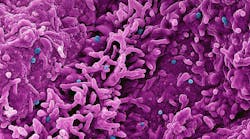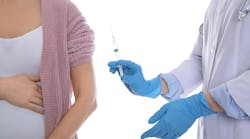One injected dose of an experimental malaria monoclonal antibody was 77% effective against malaria disease in children in Mali during the country’s six-month malaria season, according to the results of a mid-stage clinical trial.
The trial assessed an investigational monoclonal antibody developed by scientists at the National Institutes of Health (NIH), and results appear in The New England Journal of Medicine.
The clinical trial assessed two dose levels, with 19% of the 300mg-dose group and 28% of the 150mg-dose group developing symptomatic malaria, providing protective efficacy of 77% and 67% against symptomatic malaria, respectively. Among children who received placebo, 81% became infected with Plasmodium falciparum, and 59% had symptomatic malaria during the six-month study period. The authors note that the trial demonstrated for the first time that a single dose of a monoclonal antibody given by subcutaneous injection can provide high-level protection against malaria in children in an area of intense malaria transmission.
In 2022, the P. falciparum parasite caused a majority of the nearly 250 million estimated cases of malaria globally and most of the more than 600,000 malaria deaths, according to the World Health Organization. Most malaria cases and deaths are among children in Africa. Malaria parasites such as P. falciparum are transmitted to people by mosquito bites.
In 2020, scientists at NIAID’s Vaccine Research Center reported that they had isolated the antibody from a volunteer who had been vaccinated with an experimental malaria vaccine. The antibody was modified with a mutation that prolonged its durability in the bloodstream following administration. In an earlier study, conducted in Mali by the same research group, a previously discovered antibody was highly protective against P. falciparum infection in adults when given intravenously. However, the new antibody was shown to be more potent in animal studies and was manufactured at a higher concentration than CIS43LS, allowing it to be given by subcutaneous injection.
The trial in Mali took place in two parts, first to assess safety in a small number of adults and children, and then in a larger clinical efficacy trial involving 225 children. The efficacy trial took place from July 2022 to January 2023 and included healthy children 6 to 10 years of age, 75 of whom received a 300 mg dose, 75 a 150 mg dose, and 75 of whom received a placebo.





